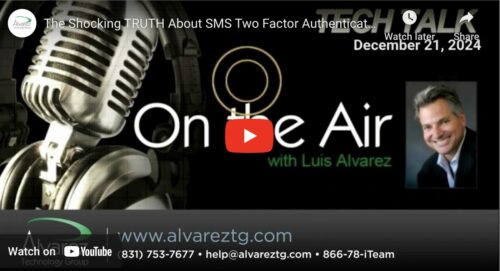Robocalls Ending: STIR/SHAKEN
If you hate robocalls and spam callers, you’ll love what’s coming on Wednesday, June 30. The FCC has created some new policies: the STIR/SHAKEN policy, which are designed to provide a better level of protection to users who have gotten increasingly frustrated with spam calls from unknown numbers, or calls coming in that they think they need to answer, only to discover that it’s yet another call about their car’s “extended warranty.”

The STIR/SHAKEN Policy: The Basics
STIR and SHAKEN, which stand for Secure Telephone Identity Revisited and Secure Handling of Asserted Information Using ToKENS (respectively), are aimed to help reduce some of those frustrating robocalls and get users back to the ability to answer the phone only when it’s someone they actually want to talk to.
These are new requirements for carriers, who must guarantee that the caller ID of a number that is being used actually belongs to that number, and that all callers have to have caller ID. When you get robocalls, a lot of the time, you’ll see “unknown number” or something similar. As of June 30, carriers have to guarantee that you can see the number on your caller ID.
For users, that means some big changes. Instead of having no idea who is calling and whether you need to pick up your phone, you’ll be able to more effectively screen your calls and get a better idea of who is actually on the other end of the phone.
Landline Relief
Unfortunately, home phones are no strangers to robocalls and spoofed calls. The new SHAKEN/STIR policies, however, aim to help reduce some of that frustration. They can’t stop robocalls entirely, nor can they stop them from choosing the worst possible moments to dial in, but they can give you a better idea of who has called you. When you pick up your phone, you’ll at least know who’s calling, which means you can make an informed decision about whether it’s worth it to interrupt dinner to take a call.
Eliminating Caller ID Spoofing
Through Caller ID spoofing services available on the internet, many users can select another party’s number and make it appear as though that party, rather than the actual caller, is the one that’s calling you.
Suppose, for example, that you have phone services through AT&T. If AT&T calls, you might automatically assume that you need to answer, just in case there’s a problem with your account. Unfortunately, many scammers choose to steal that information: spoofing AT&T so they can convince you that you’re talking to AT&T. This serves two purposes. First, it gets you to answer your phone, since you assume the call comes from a trusted number. Second, it may help increase your trust in the caller, which could lead you to provide confidential information that you normally would not share over the phone. As a result, you may end up with your identity or financial information stolen, which could cause a variety of problems down the road. With the new policies on preventing spoofing, however, your carrier must ensure that the number showing on your caller ID is the person actually calling you, which could help protect many users.
The FCC’s new SHAKEN/STIR policies are designed to provide more protection for users. While they may not eliminate spam calls entirely, they do help users make better choices about when to interact with callers–and that alone can prove invaluable. Are you hoping to learn more about the latest changes in technology and how they may impact you, as the end user? Contact us today for more information.





